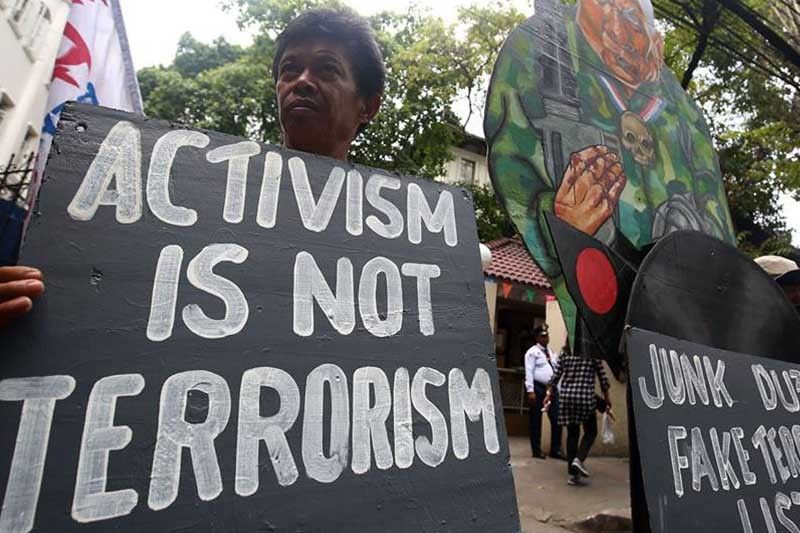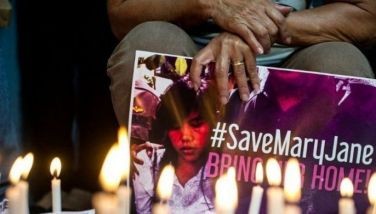Attacks vs activists persist despite Marcos' new human rights 'super body'

MANILA, Philippines — The abuse of terrorism laws to persecute human rights activists continued unabated in the Philippines despite the Marcos administration's creation of a well-publicized human rights "super body" in May, according to an international human rights watchdog on Monday.
CIVICUS Monitor, a global research institution that rates and tracks civic space in 197 countries, also kept its "repressed" rating for the Philippines, the second-worst rating a country can have.
From May to June, the country saw "trumped up" charges filed against Cebu-based development workers, the illegal raid of a peasant leader's home and the freezing of bank accounts of human rights groups red-tagged by the military, the CIVICUS report noted.
These incidents flagged by the human rights watchdog are in step with security forces' vilification and red-tagging of human rights groups that United Nations special rapporteur Irene Khan criticized during her visit to the Philippines in February.
In its latest report, CIVICUS noted that civil society viewed with concern President Ferdinand Marcos Jr.'s formation of a special body on human rights on May 12 due to the checkered history of the agencies tasked to lead it.
These are the Department of Justice, the Presidential Committee on Human Rights and the Department of Interior and Local Government, which CIVICUS said had not only failed to address rights abuses in the past but are "in fact, part of the problem."
A day after the creation of the "super body," a Cebu City regional trial court issued warrants of arrest against 28 development workers or individuals with ties to the Community Empowerment and Resource Network, a non-government organization focused on poverty alleviation.
These arrest warrants were issued based on alleged violations of the Terrorism Financing Prevention and Suppression Act of 2012 (Republic Act 10168), but human rights group Action Network Human Rights Philippines (AMP) said these are fabricated charges meant to "hinder the important work of human rights and development workers."
Moreover, AMP said the cases appear to be signs that the Philippine government is "under pressure to show progress" in the prosecution of terrorism financing and money laundering cases to escape the “grey list” of the Asia/Pacific Group on Money Laundering.
CIVICUS likewise expressed concern about yet another "illegal raid" of a peasant leader's home.
On June 18, 2024, security forces barged into the unoccupied home of peasant leader Ronnie Manalo in Bulacan, ransacking his property and allegedly planting a gun.
The rights watchdog said Manalo has long been a victim of threats and red-tagging from state forces, "owing to his long-time active involvement in the peasant struggle in the Araneta Estates."
In June, the Anti-Money Laundering Council also froze the bank accounts of non-government organizations working with communities in Eastern Visayas. This includes the Leyte Center for Development in Palo, Leyte, which was previously branded by the military as a front organization of the Communist Party of the Philippines and its armed wing, the New People's Army during the Duterte administration.
Red tagging, or the practice of labeling individuals or groups as communists, terrorists or subversives without enough proof and due process, has been declared by the Supreme Court as a threat to “life, liberty and security."
In January, six independent United Nations human rights experts called out the Philippine government for its use of red-tagging, judicial harassment and targeted financial sanctions against religious groups and activists “in the name of countering terrorism and terrorist financing.”
The UN experts counted at least 24 alleged victims of rights violations from the government’s counter-terrorism efforts from 2019 to 2023 — which covers the second half of the Duterte administration and Marcos’ first year in office.
- Latest
- Trending
































